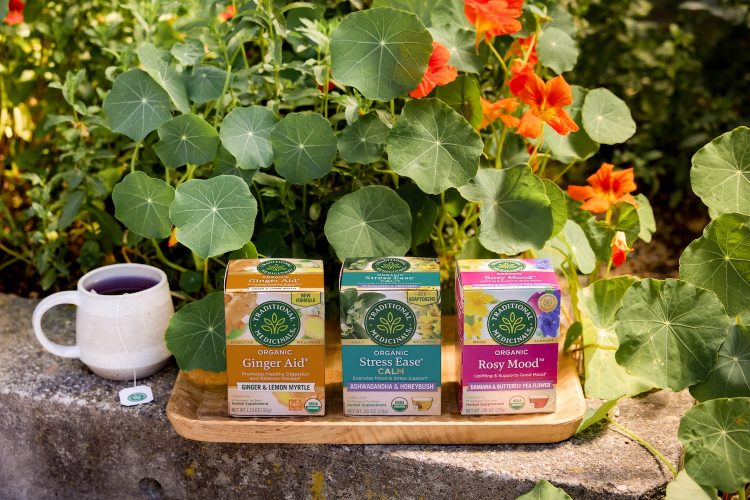TriplePundit • Brands Come Together to Raise Awareness of the Only Fair Product Label That Goes Beyond the Farm Gate

Ecolabel Index now has more than 450 environmental product labels in its independent global directory. They all indicate products meet certain social and environmental standards, but with some products now having more certifications than ingredients, it’s difficult for consumers to know which ones they should look for and what they all mean.
That’s why brands like Traditional Medicinals are raising awareness for one of the certifications they are most proud of: Fair for Life.
“This standard looks at all links along the supply chain, while maintaining rigorous environmental standards,” said Jamie Horst, chief purpose officer at Traditional Medicinals, a botanical wellness company known for its popular herbal teas. “Fair for Life ensures everything that other fair standards do, with added benefits.”
But in a sea of certifications, consumer awareness of the Fair for Life label remains low. That’s why certified brands Traditional Medicinals, Yerba Madre, Dr. Bronner’s and Sambazon linked up on an educational campaign that tells people what Fair for Life is all about. From shareable videos to on-pack messaging, the partners aim to co-create clear messaging that helps consumers understand Fair for Life and what the label tells them about a product.
Certifying beyond the farm gate
While other fair-trade labels check environmental and worker standards at the farm level, Fair for Life is unique in that it checks them through each major step in the supply chain, from seed to sale.
“For a company like ours, where the health of forests, farmers, workers and future generations are all connected, we needed a certification that takes the whole system into account. Fair for Life gives us that holistic lens,” said Rocio Bermudez-Pose, senior manager of impact at Yerba Madre, a company that sells beverages based on a popular South American herb.
Take herbal tea, for example: Fair Trade and other fair certifications may have similar requirements at the farm level where the herbs are grown. But Fair for Life’s requirements follow the herbs to the farm’s buying partner, to processing and distribution facilities, and to the consumer-facing brand selling the final product. Social, environmental, governance and economic factors are audited at every step.
Each actor has to achieve a certain level of compliance with the requirements and has an ongoing obligation to improve year over year. Certain red flags like deforestation, forced labor and the use of restricted chemicals can bring the immediate suspension of certification. For smaller issues, like employees not wearing proper protective equipment, companies are given a chance to correct themselves before being suspended.
Fair for Life removes producer exploitation — and disrupts the idea that fair trade is charity
A major concern with supply chains that originate in locations with little government oversight is worker exploitation and underpayment for products, particularly in agriculture, mining and manufacturing. Fair for Life aims to solve this by auditing labor standards and ensuring a “contextualized floor price” for farmers.
“We are the only ones who have a highly contextualized floor price, meaning that during our audit we do a cost of production analysis and we find out what the producer needs in order to be profitable,” said Krista Pineau, certification manager at Ecocert, the company that issues and manages the Fair for Life certification. “The producer then has a discussion with their trade partner and they agree on that floor price.”
This contextualized floor price allows Fair for Life to work with a wide range of producers. Other fair certification labels often have floor prices set for specific products like coffee or cocoa, but they may unintentionally exclude producers of niche products that aren’t covered.
“The fact that producers are equal partners in defining that price, we’re supporting the power that producer operations have in these relationships,” Pineau said.
“Positioning producers as equal partners not only ensures fair pricing, but also disrupts the notion that fairness is somehow an act of charity rather than what should be a business norm,” said Horst of Traditional Medicinals, which achieved Fair for Life certification in October 2023 and launched two new Fair for Life certified products last month. “Fair for Life’s whole goal is to remove not just exploitation, but also the false believe that we can exist without each other. It’s a mutually beneficial relationship all along the supply chain,” she said.
More than 700 companies across 70 countries have achieved Fair for Life certification, often alongside other eco labels that communicate slightly different sustainable product attributes. Traditional Medicinals, for example, uses certifications like FairWild, focused on fairness and sustainability when harvesting wild plants, and USDA Organic to ensure organic farming practices. Rather than replacing these standards, the company sees Fair for Life as an additive way to safeguard an ethical supply chain from end to end, Horst said.
Good for business in more ways than one
Consumers who prioritize ethical sourcing and fair labor will be happy to know that Fair for Life is one of the most stringent international certifications they can find. For businesses, obtaining Fair for Life certification demonstrates a genuine commitment to sustainability, and that’s attractive to a growing segment of consumers.
“Consumers really care about this, and having a certification label as a quick reference point makes values-aligned decisions easier.,” Horst said.
For brands like Traditional Medicinals, Fair for Life certification also allows for a consistent and sustainable supply of niche herbs and plants. Many of the ingredients the brand uses are grown wild and collected, rather than farmed and harvested. Combined with the FairWild standard, Fair for Life ensures that the communities who harvest these plants do so in an ecologically responsible fashion, so the plant continues to grow and reproduce naturally year after year.
“From a business perspective, it’s about securing access to trusted producers and premium materials,” Horst said. “It’s about stability, predictability and sustainability in sourcing for us, for our global source communities, and ultimately for the planet.”
Yerba Madre echoes this sentiment. “When we invest in fair partnerships and healthy ecosystems, our supply chain becomes stronger and more reliable,” Bermudez-Pose said. “And when we take care of the communities we work with, they take care of us.”
This story is sponsored by Traditional Medicinals and produced by the TriplePundit editorial team



Post Comment